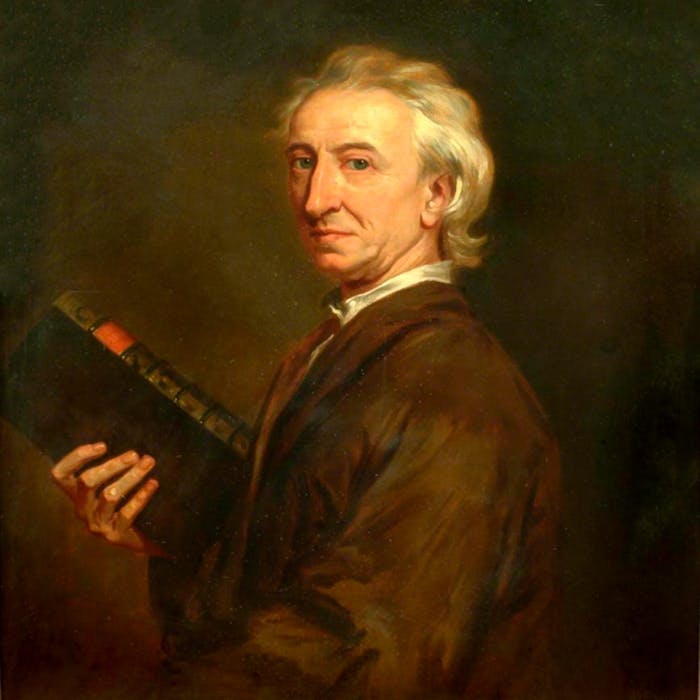
John Evelyn - 17th Century polymath and thinker
John Evelyn was an English writer, gardener, intellectual and diarist in the 17th century. His diary spanned the period of his adult life from 1640 to 1706, the year he died. His notable achievements include books on a number of subjects such as architecture, cookery, horticulture, politics and theology. He gave advice to the government on air pollution and forestry.
Like his friend and contemporary, Samuel Pepys, Evelyn's diary gives us some of the best information about the momentous events in English history that he witnessed. He was also an enthusiastic correspondent, many of his letters having been preserved. Evelyn associated himself with just about everyone of importance in Restoration London, including the royal family, and there were few of the grand projects of the time that he was not somehow part of.
Evelyn was born in Surrey into a wealthy family at Wotton House, near Dorking in Surrey, which he later inherited. The River Tillingbourne flows through the estate, with a mill used for the manufacture of gunpowder, a major source of the family's fortune. During his time there Evelyn created the first Italian garden in England.
He witnessed some of the events that led up to the Civil War, including the execution of the Earl of Stafford. He joined the Royalist army for a time but went to Italy and France to avoid the conflict and in 1647 married the daughter of the Royalist ambassador in Paris. By the time of the execution of Charles I Evelyn and his wife were back in England and he purchased a house from his father-in-law at Sayes Court at Deptford, close to the royal naval dockyard, where he began to create a garden.
During the Interregnum period Evelyn sent intelligence information in code to his wife’s father in Paris and after the Restoration he was favoured by Charles II for his loyalty and assistance, becoming an advisor to the King throughout his reign.
Evelyn had a great interest in new kinds of scientific, geographic and philosophical ideas and in 1660 was a founder member of the Royal Society. In 1661 Evelyn published his pamphlet Fumifugium, or the Inconveniencie of the Aer and Smoak of London Dissipated in which he criticised the way that smoke and noxious waste from industries such as lime-burning and soap-boiling were polluting London’s air.
Another area in which he developed expertise was in the cultivation of wood for shipbuilding, as existing supplies had been exhausted. Evelyn was commissioned by the Navy Board to produce a paper entitled Sylva or Discourse of Forest Trees and the Propagation of Timber in his Majesty’s Dominion, published in 1664. The large work contains much practical advice on the growing of trees and he implores the land-owning classes to protect woods and forests. Evelyn claimed that it had led to the planting of a million oak trees.
During his time travelling in Europe, Evelyn became a student of the concept of town planning and layout and was full of ideas of what could be done in London. As fellow members of the Royal Commission considering the state of London’s streets, Evelyn made the acquaintance of Christopher Wren who shared his interest in architecture. When it was decided that Wren should travel to Paris in 1665 to inspect the city Evelyn was able to offer advice on what he should see there.
As well as writing them, Evelyn was himself, a great collector of books.
Further reading
Links to external websites are not maintained by Bite Sized Britain. They are provided to give users access to additional information. Bite Sized Britain is not responsible for the content of these external websites.
